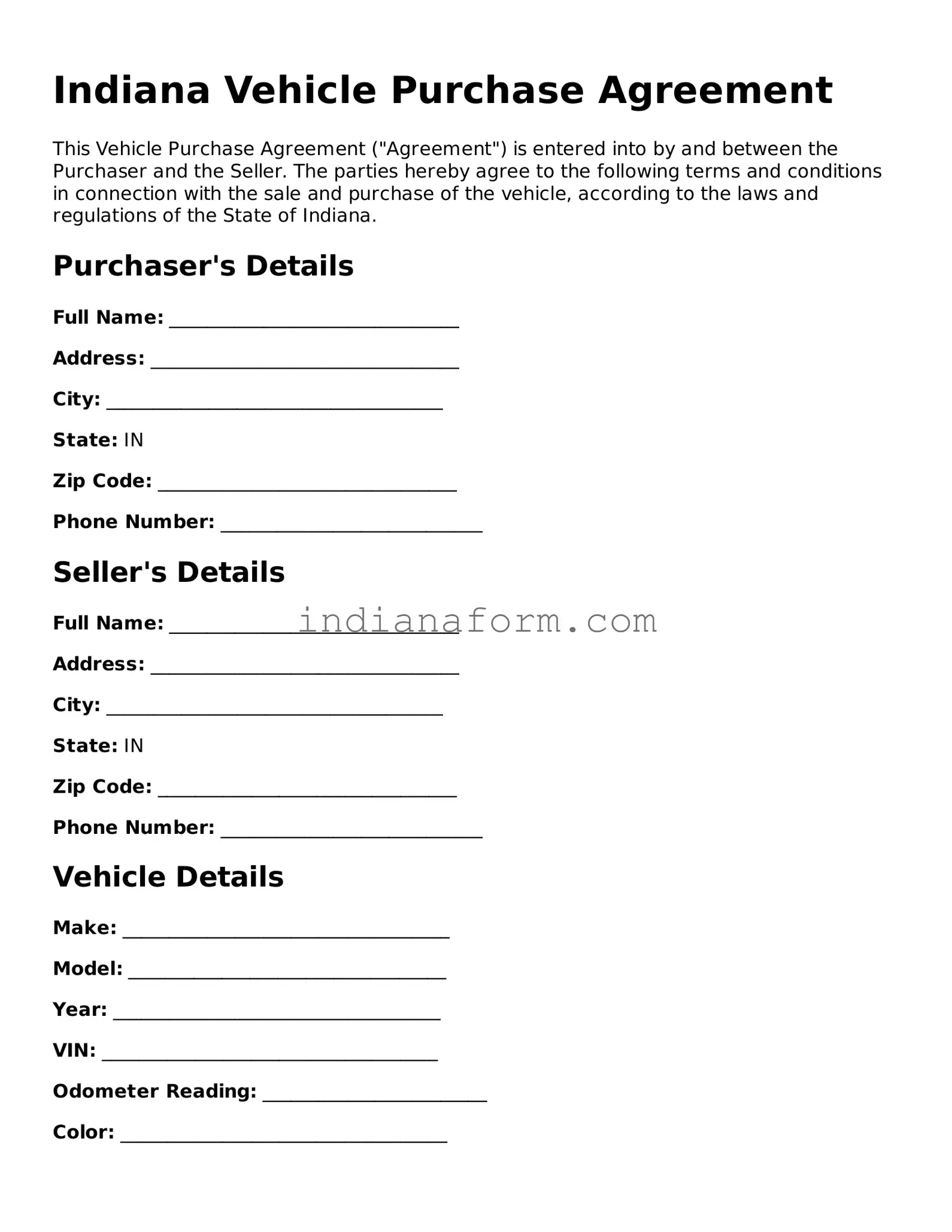Indiana Vehicle Purchase Agreement Template
The Indiana Vehicle Purchase Agreement form is a legally binding document that records the details of a transaction between a buyer and a seller for the sale of a vehicle. It outlines the terms and conditions, including the price, vehicle identification number (VIN), and warranties, ensuring both parties are clear on the agreement. This form serves as an essential proof of purchase and protects the rights of both the buyer and seller.
Fill Out Your Document Online

Indiana Vehicle Purchase Agreement Template
Fill Out Your Document Online

Fill Out Your Document Online
or
⇓ Vehicle Purchase Agreement PDF Form
Don’t stop halfway through your form
Edit your Vehicle Purchase Agreement online and get it downloaded.